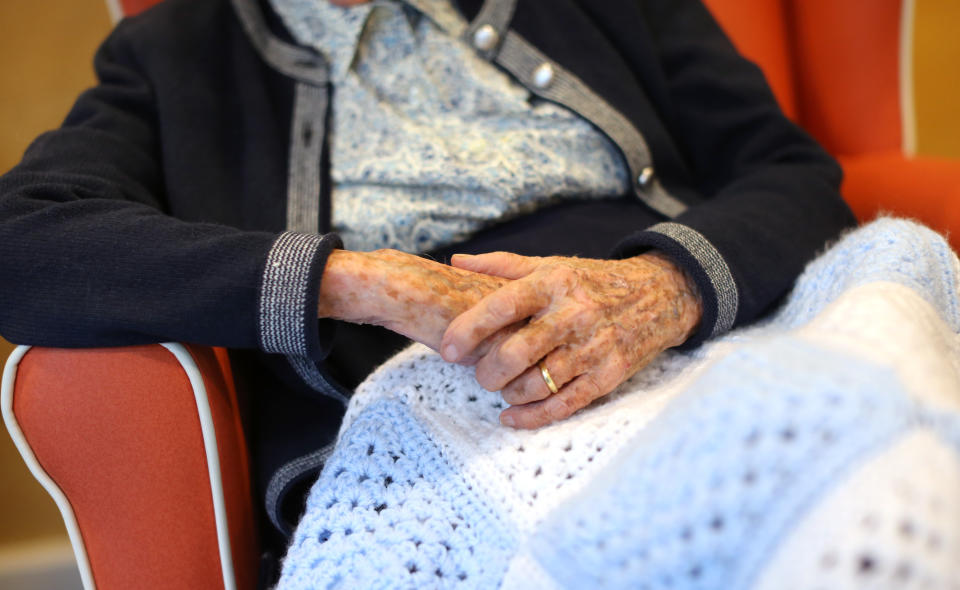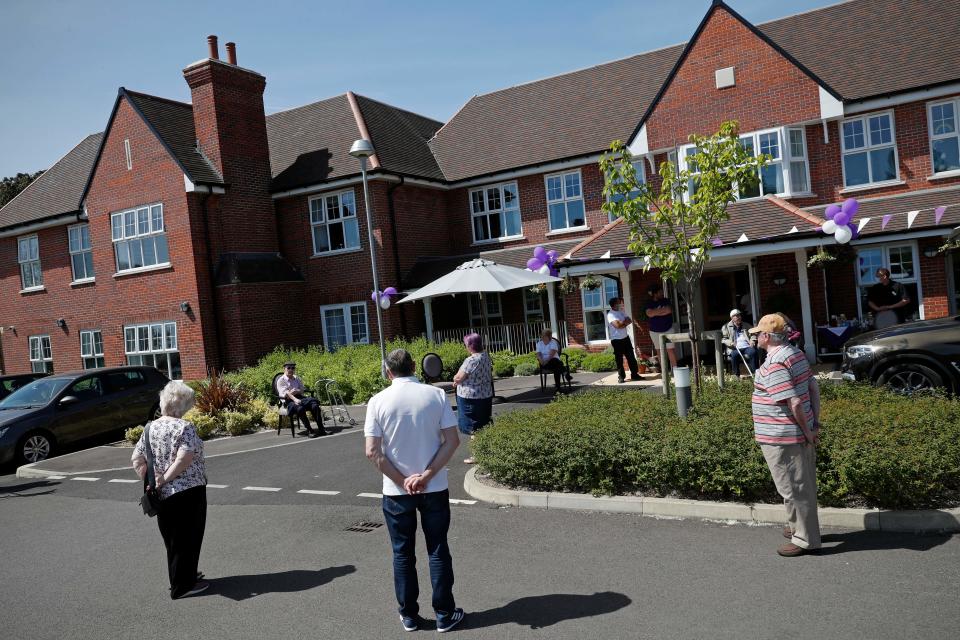Dementia sufferers can't see loved ones because government testing 'incredibly chaotic'


The government’s coronavirus testing regime in care homes has been “chaotic” and limited their ability to allow visitors to see their loved ones, an industry leader has said.
Care England CEO Martin Green said the government’s scheme to regularly test residents and staff in care homes “is not delivering what we thought it would deliver and in some areas it’s extremely chaotic”.
Speaking to the BBC Radio 4’s Today Programme, Green said care homes were struggling to allow visitors because of fears they could not protect their staff or residents, and the threat of legal action by the NHS if someone dies of COVID-19.
Green was speaking alongside Julie Jones, co-founder of the charity John’s Campaign, which is mounting a legal challenge over the government’s guidance on family visits to care homes during the pandemic.
They are seeking to reverse a rule in the Department of Health and Social Care’s care home visiting guidance issued on 22 July that lets local health authorities decide if it is safe for visitors to see their loved ones.

Charities have said this was likely to result in little change in visiting access unless the point was “clearly made and enforced by the government”.
John’s Campaign believes closest family members are not an “optional extra” but integral to residents’ wellbeing, and that the government has failed to take into account individuals’ human rights.
The charity cited the case of a retired doctor who has not been able to visit her 92-year-old mother, who has Lewy body dementia, for six months.
She has been told she can only visit again when her isolated and bed-bound mother is dying.
Jones said: “These are not visitors, these are people’s husbands, these are people’s children who have been their children for 60 years.
Read more: Coronavirus: Weekly cases at highest level since end of May, figures show
So important to help people's voice be heard -- we must have change so let6's sign and share as busily as we can
Please let me see my family before it's too late! https://t.co/2jRXAjSgqD via @UKChange— John's Campaign (@JohnCampaign) September 2, 2020
“This is a humans rights matter, you can’t restrict people’s right to family life disproportionality and this is absolutely disproportionate and completely wrong.”
Some care homes are making decisions on visitors based on individual needs, others are still unwilling to allow visitors in order to protect their whole community.
John’s Campaign argues that not allowing visitors is causing “avoidable suffering”.
Green said some care homes are finding it much more difficult to bring back visitors because of the vulnerability of their residents and the physical nature of their buildings.
He said the government’s failure to get the testing regime sorted had been an “impediment” to the return of visitors.
Read more: Coronavirus: Government commits £500m for 20-minute COVID test trials

John’s Campaign seeks to help the rights of people suffering with dementia because they often struggle to understand what is going on around them, making it doubly hard to support them during the pandemic.
Care homes are having to provide care in a socially distant way with staff using ppe often confusing residents, and with family members being unable to see them it is proving difficult to get the support they need.
In July a group of charities came together to ask the government to treat family members of people with dementia as key workers.
They argued forced separation between them and their loved ones was having damaging consequences for people with dementia.
Jones said she never imagined she would be launching a legal challenge like this but added: “We know we’re speaking for thousands who are experiencing extraordinary bewilderment and anguish.
“We can only hope that the government will waste no more of these people’s precious time and will give clear direction and the necessary support for their needs and wishes to be respected.”
Read more: Coronavirus: Almost 11% of UK stores are vacant as pandemic hammers high street
The charity cited the case of a retired doctor who has not been able to visit her 92-year-old mother, who has Lewy body dementia, for six months.
She has been told she can only visit again when her isolated and bed-bound mother is dying.
The charity intends to crowdfund to cover some of the legal costs.
A Department of Health and Social Care spokesman said: “We know that limiting visits in care homes has been difficult for many families and residents who want to see their loved ones, but our first priority is to prevent infections in care homes, and this means that visiting policy should still be restricted, with alternatives sought wherever possible.
“Visiting policies should be tailored by the individual care home and taking into account local risks in their area.”
Coronavirus: what happened today
Click here to sign up to the latest news and information with our daily Catch-up newsletter

 Yahoo Sports
Yahoo Sports 